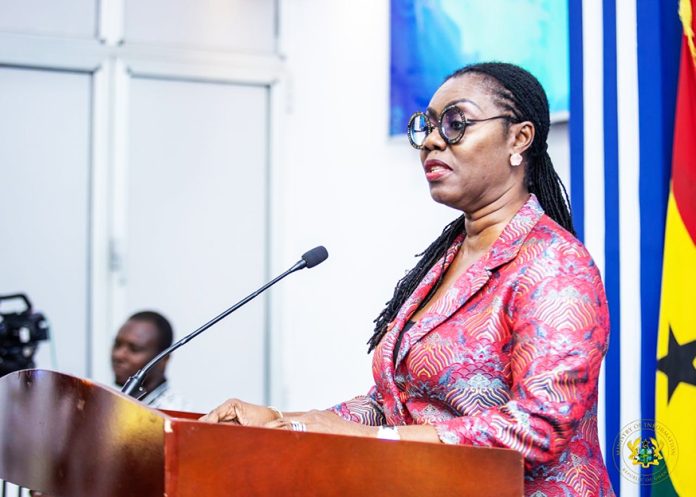The Government of Ghana, in partnership with the private sector, is to deploy affordable 5G mobile broadband services across the country.
The Government, in collaboration with Ascend Digital, K-NET, Radisys, Nokia and Tech Mahindra has launched the Next-Gen InfraCo (NGIC), a shared infrastructure company aimed at making Ghana a fully digitised nation by 2030.
The agreement, formalised in Mumbai, India on May 27, 2024 marks the culmination of over two years of planning and negotiations.
This partnership was announced during a news conference organised by the Ministry of Information in Accra, May 30, 2024.
Addressing the media, Mrs. Ursula Owusu-Ekuful, Minister for Communications and Digitalisation stated that: “This initiative aims to deliver affordable 5G mobile broadband services across our nation, propelling us towards a fully digitized Ghana by 2030.
“NGIC’s neutral hosting model and Network-as-a-Service (NaaS) offering will accelerate national enablement programs, reduce the digital divide, optimize capital expenditure, and ensure efficient operating costs,” Mrs. Owusu-Ekuful explained.
NGIC has been awarded a 5G license and aims to launch services within the next six months. Nokia and Radisys will build the shared 4G and 5G infrastructure, with Microsoft and Tech Mahindra providing IT architecture and integration.
“This collaboration ensures that we leverage cutting-edge world-class expertise and technology to build a robust digital infrastructure,” the Minister added.
The minister indicated that the NGIC network will bolster government efforts to offer new services through e-government applications and inclusion programs, fostering opportunities for the private sector.
“NGIC’s origin is rooted in our national vision of universal access to broadband, delivering citizen-centric services through e-Gov initiatives,” Mrs. Owusu-Ekuful noted.
She explained that efforts towards a 100% digital Ghana include rehabilitating critical national infrastructure, building a rural telephony network connecting 3.4 million subscribers, and establishing the Cyber security Authority.
“We have also built a high-speed E-Gov network connecting 951 public institutions and agencies across the country, powered by 3500 kms of newly laid fibre,” Mrs. Owusu-Ekuful highlighted.
As the sole wholesale 5G licensee in Ghana, the minister said the NGIC will offer an open access-based neutral platform to all Mobile Network Operators (MNOs).
AT and Telecel Ghana have already signed partnership agreements with discussions ongoing with MTN.
“This inclusive approach ensures that all service providers have equal access to the infrastructure needed to deliver high-quality services to their customers,” said Mrs. Owusu-Ekuful.
On the long term impact, Mrs. Owusu-Ekuful added that the NGIC aims to deploy 4,400 sites, reaching 37 million customers by 2028, with a goal of making Ghana 100% digital by 2030.
“Through NGIC, we hope to increase the 4G penetration rate to 80% and beyond nationwide,” the Minister remarked.
She noted that Nokia, Tech Mahindra, and Radisys are key partners in the project. Nokia will provide a state-of-the-art Radio Access Network, while Tech Mahindra will build a Cloud Native Core Network. Radisys will offer Open Radio Access Network technology and affordable devices.
Mrs. Owusu-Ekuful said with Ghana well-positioned for 5G implementation, the shared network infrastructure model aims to reduce investment pressures on MNOs while delivering best-in-class services.









